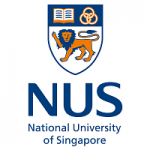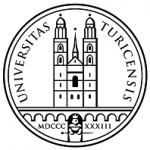项目介绍
Welcome to the Department of Management & Organisation (M&O). According to citation analyses, the M&O Department at the NUS Business School is one of the best in Asia Pacific. With a staff strength of around 30, the department offers a variety of courses in organisational behaviour and management, and human resource management through undergraduate, graduate and executive training programs.
Specific areas of research cover organizational behaviour – behaviour, feelings, motivation, and performance of individuals within organizations, and how effective and healthy organizations evolve. Three aspects are of particular importance:
- Workplace Wellness and Well-being
- Prediction, development, and maintenance of satisfaction, morale, physical and psychological health of employees
- Biological and physiological basis of organizational health and employee wellness
- Emotions at work
- Impact of incivility, harassment, and other forms of “bad work environments” on employee well-being
- Human Resource Management (HRM) / Leadership
- Leadership succession, recruiting, staffing, retaining talent
- Training and development, compensation, work place design
- Organizational design and organizational climate and culture, biological basis of leadership, cross-cultural issues of leadership
- Proactive behaviour at the workplace
- Entrepreneurship
- Innovation process
- Entrepreneurial capabilities for success, coping with failures and mistakes, crowd-funding, cross-cultural issues
- Entrepreneurship education
Professor Remus ILIES
PhD Programmes
Foundations Courses
BZD6006 Seminar in Organisational Theory
This module provides a broad overview of Organisation Theory and an in-depth look at current debates. We read and discuss classical organisational sociology and the emergent fields such as organisational economics, institutional theory, network theory and organisational ecology. Students are expected to engage in independent reading, interpretation and debate. During the semester, the students submit two short papers on topics of their choice, and a final term paper with an integrative theme. This paper must demonstrate a deep understanding of the material, an ability to integrate literature, and independent conceptual development.
BZD6008 Cognition and Affect
This module provides an overview of fundamental research on social psychology, and to help students develop skills for generating and conceptualising ideas, critical thinking, and designing studies. Topics include perception and attention; learning and memory; automaticity, implicit processes, priming; embodiment; metacognition, fluency and problem solving; emotions and mood, including discrete emotions, affective ambivalence; subjective well-being, stress and strain; affect as information, affective forecasting; perspective taking, empathy, anthropomorphism, dehumanisation; influence and persuasion; attitude measurement; self and identity, egoism-altruism, prosocial behaviour.
BZD6009 Motivation and Interpersonal Processes
This module introduces graduate students to psychological foundations of organisational behaviour and consumer behaviour with a focus on motivation and interpersonal processes. Topics covered include goals, motivation, self-regulation, action regulation, construals, heuristics and biases, decision making under uncertainty, self and identity, ethics, fairness, trust, diversity, culture, norms, groups and teams, social exchange, power, status, and hierarchy. The course introduces students to basic research in social, personality, and cognitive psychology on these topics. Class discussion is focused on applying ideas from basic research to applied research in organisational behaviour and consumer behaviour.
BZD6010 Seminar in Research Methodology
This module is focused on the skills involved in understanding, evaluating, conducting and reporting research in the behavioural sciences. Topics addressed include the philosophy of science, theory building, hypotheses development, alternative inquiry methods such as quantitative and qualitative research, and research design among others. The course addresses experimental design, survey research, qualitative research methods and emerging streams of research. The course is conducted as a seminar with extensive readings and preparation. A reasonable knowledge of statistics and a basic knowledge of social science research are necessary for this course. Students are expected to rely on themselves to conduct independent projects as part of the course.
BZD6011 Advanced Quantitative Research Method
The focus of this module is on applying quantitative tools to research projects in fields of management and other behavioural sciences. New statistical models are introduced more at the conceptual and application levels rather than mathematical level. Students get hands-on experience using statistical software to analyse real data sets in this class. Topics include data management, multivariate regression, factor analysis & structure equation modelling, hierarchical linear modelling, longitudinal data analysis, meta-analysis, and survival analysis. Target students are graduate research students in fields of management and other behavioural sciences in the Business school and other faculties.
BZD6012 Experimental Design
This module is aimed at Ph.D. students who intent to conduct experimental and quasi-experimental research in business (e.g., marketing, organisational behaviour) and related disciplines (e.g., economics, psychology). The primary objective is to provide students the concepts and tools needed for collecting and analysing behavioural data. Topics include: factorial designs, repeated (within-subject) and mixed designs, fractional (e.g., Latin squares) designs, analysis of covariance.
Concentration Courses
BMO6010A OB Seminar: Leadership
This is a doctoral-level research seminar on leadership. Course topics include individual, contextual, relational, and process approaches to leadership emergence and effectiveness at various hierarchical levels.
BMO6011A OB Seminar: Work, employee and organisational well-being
This module is focused on current issues related to work, employee and organisational well-being. We discuss employee-organisation relations and examine issues and trends (e.g., advancements in information technology, population changes) that affect work-life linkages, employees’ stress, work performance, antisocial behaviours and organisational functioning.
BMO6012A OB Seminar: Interpersonal Relations
This course examines interpersonal relations in work and organisational settings—how interpersonal relationships are formed and maintained, the dynamics of trust and distrust and their attendant implications for social processes (e.g., collaboration, knowledge sharing, social supporting, social undermining), and the consequences that follow for employees and organisations.
BMO6013A OB Seminar: Motivation & Work Behaviour
Motivation is a core competency of leadership and a central problem that needs to be addressed in management and organisational behaviour. This course examines what motivates employees to engage in performance related work behaviours, such as task performance and organisational misbehaviour. We address, amongst others, personal characteristics related to work motivation (e.g., needs, attitudes, emotions, cognitions), job characteristics related to work motivation (e.g., autonomy, challenge), situational characteristics related to work motivation (e.g., social support, organisational justice, reward and punishment), and the consequences that follow for employee’s work behaviours.
BMO6014A OB Seminar: Social Capital Theory & Methods
This course applies the social capital theory and methods to understand performance of individuals and teams in organisational settings. From this course, students will gain a deeper understanding of the central role that social capital (i.e., resources embedded in social networks of relationships) plays in influencing how individual and teams perform in organisations. They will also understand how to apply the social capital theory and methods to explain individual and team outcomes in organisations.
BMO6015A OB Seminar: Entrepreneurship & Innovation
The field of OB (Organisational Behaviour) needs to know how organisations get started and developed – this is the field of entrepreneurship. Entrepreneurship needs to know how new ideas get developed – this is the field of innovation. The module presents the current scientific knowledge on entrepreneurs, how they behave and what are effective and ineffective behaviours – all of this from the OB perspective. It further asks the question, how innovations are developed. Entrepreneurship and innovations exist in small and large organisations, in for profit and in non-for-profit organisations (e.g., as organisational culture). Thus, this is basic knowledge for OB PhDs.
BMO6016A HR Seminar: Human Resource Management Foundations
This module surveys fundamental topics in Human Resource Management such as recruitment, selection, training, performance appraisal, and employment relations.
BMO6017A HR Seminar: Human Resource Management Challenges
The fast changing technology and economics in the world has put pressure on organisations to adapt their Human Resource (HR) systems. We sample emerging trends in personnel management and try to build practical relevance of Human Resource Management research. We discuss issues such as different HRIR systems, sustainability, learning organisations, HRM in different types of organisations (government agencies, NGOs, etc.) global human capital management, etc. in the class.
相关项目推荐
KD博士实时收录全球顶尖院校的博士项目,总有一个项目等着你!





